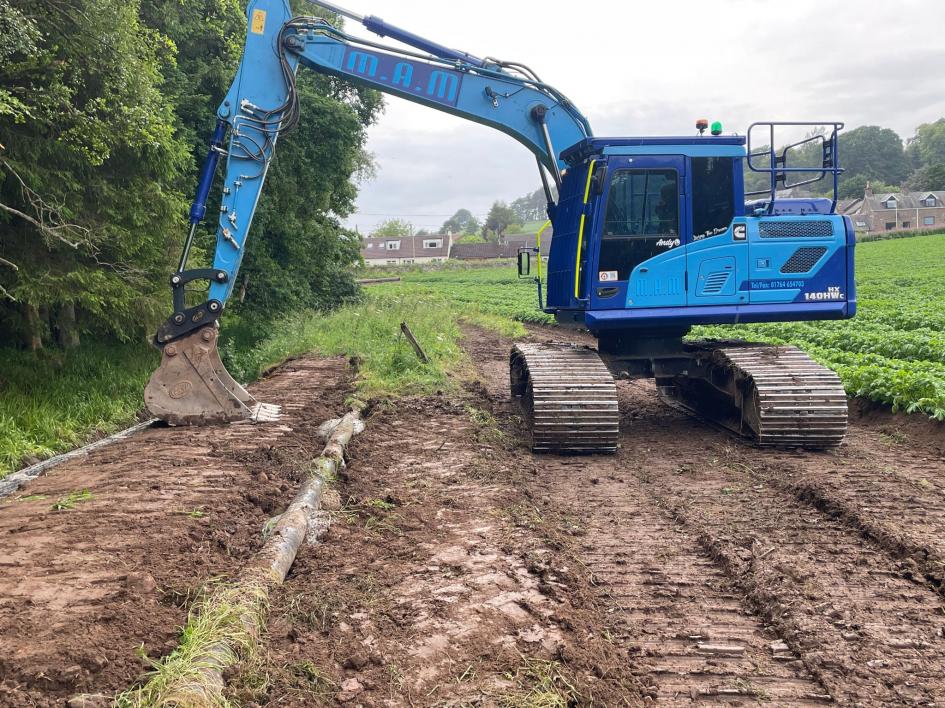Before any structure can rise from the earth, the land must be prepared—leveled, cleared, and precisely shaped to support the foundation that will follow. This critical phase of construction is handled by a professional whose work is often unseen but always essential: the excavation contractor. While the average observer may focus on the architectural grandeur or design features of a finished building, every successful project depends on what happens underground first.
Excavation is not simply a matter of digging; it involves technical precision, environmental awareness, and adherence to safety and engineering standards. In this in-depth article, we’ll explore what excavation contractors do, why their work is essential to construction, how to choose the right one, and what to expect from their services. Whether you’re building a home, commercial facility, or infrastructure project, understanding this profession is key to getting your project off to a stable start.
The Excavation Process: More Than Just Moving Earth
Excavation involves removing soil, rocks, and other materials to create a suitable surface for construction. The process requires detailed planning and specialized equipment. But more importantly, it demands expertise—knowing how to read site plans, account for soil type, identify drainage needs, and ensure the land will support whatever structure is intended for it.
Key Excavation Services Include:
- Site clearing: Removing vegetation, trees, stumps, and existing structures
- Grading: Creating the correct slope and surface contour
- Trenching: Digging for foundations, plumbing, electrical systems, and drainage
- Soil compaction: Ensuring the ground is firm enough to support a building
- Cut and fill operations: Balancing elevation changes by cutting high areas and filling low ones
- Drainage systems installation: Preventing water accumulation or flooding
These tasks must be executed with high precision. A miscalculation in excavation depth or slope can lead to structural instability, drainage issues, and long-term problems such as foundation cracks or erosion.
Why Excavation Sets the Stage for Construction Success
Though often hidden beneath the surface, excavation is one of the most crucial stages of any build. When done properly, it sets a solid foundation for everything else to follow.
1. Foundation Support
The most obvious reason excavation is critical is because it directly affects the stability of the foundation. The load-bearing capacity of the soil beneath a building must be assessed and optimized. If the soil is too loose, moist, or inconsistent, steps must be taken to stabilize it. This ensures the building won’t settle unevenly or crack over time.
2. Water Management
Proper grading during excavation helps direct water away from the structure. If this isn’t done correctly, water can pool around the building, leading to leaks, erosion, and mold issues. Drainage is especially important for basements and crawl spaces.
3. Utility Access
Many utilities—water, sewer, gas, and electrical—are buried underground. Accurate trenching ensures these services can be installed safely and efficiently. An experienced excavation contractor will know how to dig without damaging existing utility lines and how to prepare trenches to local building codes.
4. Project Efficiency
A well-prepared site speeds up the construction timeline. Framing crews, concrete workers, and utility installers all benefit when they arrive to a properly graded and excavated worksite. Delays due to poor site prep can lead to increased labor costs and project overruns.
The Skills and Equipment Behind Excavation Work
Because excavation work requires both physical labor and technical knowledge, not just anyone can handle the demands of the job. A trained excavation contractor brings the right mix of skills, certifications, and equipment to the site.
Professional Skills:
- Reading and interpreting site plans and blueprints
- Understanding different soil types and how they react under pressure
- Knowledge of local building codes and safety standards
- Communication with engineers, architects, and other trades
- Risk assessment and mitigation
Common Equipment Used:
- Excavators (wheeled or tracked)
- Backhoes
- Bulldozers
- Skid-steer loaders
- Graders
- Dump trucks
- Compaction equipment
The right contractor will have access to a variety of machines and know which one is best suited for the task at hand. Whether working on a small residential plot or a large commercial development, versatility and efficiency are key.
How to Choose the Right Excavation Contractor
Hiring an excavation professional isn’t just about finding someone with a big machine. It’s about ensuring the groundwork is done right the first time. A poor excavation job can cost thousands in repairs or delays later on. Here’s how to make the best choice.
1. Experience and Reputation
Look for contractors with a proven track record and a history of completed projects. Ask for references and check online reviews. Contractors who specialize in excavation—as opposed to general laborers—will offer more insight and skill in this specific field.
2. Proper Licensing and Insurance
Make sure the contractor is licensed to operate in your area and has the appropriate insurance coverage, including liability and workers’ compensation. This protects you from legal or financial consequences if something goes wrong on the job site.
3. Transparent Estimates
A trustworthy excavation contractor will provide a clear, written estimate that breaks down labor, equipment, materials, and any other costs. Be wary of vague or unusually low quotes—they may lead to hidden fees later.
4. Safety Standards
Excavation can be dangerous, especially when working around heavy machinery, deep trenches, or existing utilities. Ask about the contractor’s safety protocols and training certifications.
5. Communication and Timeline
Excavation is the first major milestone in construction. Delays at this stage can push back the entire schedule. Choose a contractor who communicates clearly, responds promptly, and respects agreed-upon timelines.
Common Challenges in Excavation (and How Experts Solve Them)
Even with perfect planning, excavation can uncover surprises. A seasoned excavation expert knows how to adapt and solve problems as they arise.
Examples of On-Site Challenges:
- Unexpected rock formations: May require different machinery or blasting permits
- Waterlogged or soft soil: Needs reinforcement or specialized fill
- Hidden utility lines: Must be avoided or rerouted with care
- Unstable trench walls: Require immediate shoring or slope adjustments
- Environmental concerns: May involve protected trees, wetlands, or contamination
A good excavation team will anticipate these challenges where possible and know how to deal with them without derailing the entire project.
Excavation and Environmental Responsibility
Modern excavation practices don’t just prioritize efficiency—they also consider environmental impact. Soil erosion, sediment runoff, and land degradation can have long-lasting consequences if not addressed.
Responsible excavation includes:
- Using erosion control measures such as silt fences or sediment basins
- Preserving topsoil for reuse in landscaping
- Minimizing disturbance to nearby trees and natural habitats
- Managing dust and debris on-site
- Proper disposal of excavated materials
A knowledgeable excavation contractor will factor environmental stewardship into every job.
Final Thoughts
Excavation is the essential first step in virtually every construction project, yet it’s also one of the most underestimated. When done with care, precision, and experience, it lays the literal groundwork for everything that follows. When done poorly, it can compromise an entire structure—sometimes beyond repair.
Choosing a qualified excavation contractor ensures that your site is prepared properly, safely, and to code. From grading and trenching to soil testing and drainage design, the right professional brings expertise, equipment, and planning together to help your project start strong and stay on track.
If you’re planning a build, renovation, or site development, don’t rush the excavation phase. Instead, invest the time and research into hiring the right partner. After all, your building is only as strong as what lies beneath it—and that’s where a trusted excavation expert makes all the difference.





























